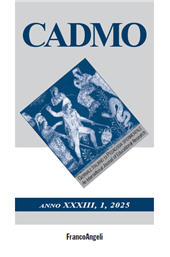Development and psychometric validation of the TC-CIS Scale for measuring self-perceived teaching competencies in the instruction of controversial issues
22-39 p.
This study presents the development and psychometric validation of the Teaching Competencies in Controversial Issues Instruction Scale (TC-CIS), designed to measure perceived selfÂÂefficacy and institutional support in the didactic treatment of controversial issues. A cross-sectional instrumental design was applied to a sample of 684 Spanish social and experimental sciences teachers. Following an item development process based on a literature review and expert judgment (BW 0.95; AC2 0.95), the 10ÂÂitem scale underwent Confirmatory Factor Analysis. The resulting bifactorial model demonstrated an excellent fit (df = 1.15; CFI = 0.998; TLI = 0.997; RMSEA = 0.015; SRMR = 0.018), with factor loadings ranging from 0.79 to 0.87 and a low correlation between factors (r = 0.02). Internal reliability was high (total = .86; = .86; FC = .96), and convergent validity was satisfactory (AVE .67). Moreover, configural, metric, scalar, and strict invariance were confirmed across gender, age, origin, educational stage, and
prior training (CFI 0.01). However, predictive validity analysis indicated a limited discriminatory capacity regarding teachers' formative intention (AUC = 0.572). It can be concluded that the Teaching Competencies in Controversial Issues Instruction Scale (TCÂÂCIS) provides a brief, robust, and culturally stable measure of teaching competencies for addressing sensitive or controversial issues in Social and Experimental Sciences classrooms, although its predictive power needs further specification and its applicability in international contexts should be explored. [Publisher's Text]
-
Articoli dello stesso fascicolo (disponibili singolarmente)
-
Informazioni
Codice DOI: 10.3280/CAD2025-001003
ISSN: 1972-5019
PAROLE CHIAVE
- teaching competencies, controversial issues, psychometric validation, pedagogical selfÂÂefficacy, Social and Experimental Sciences education


